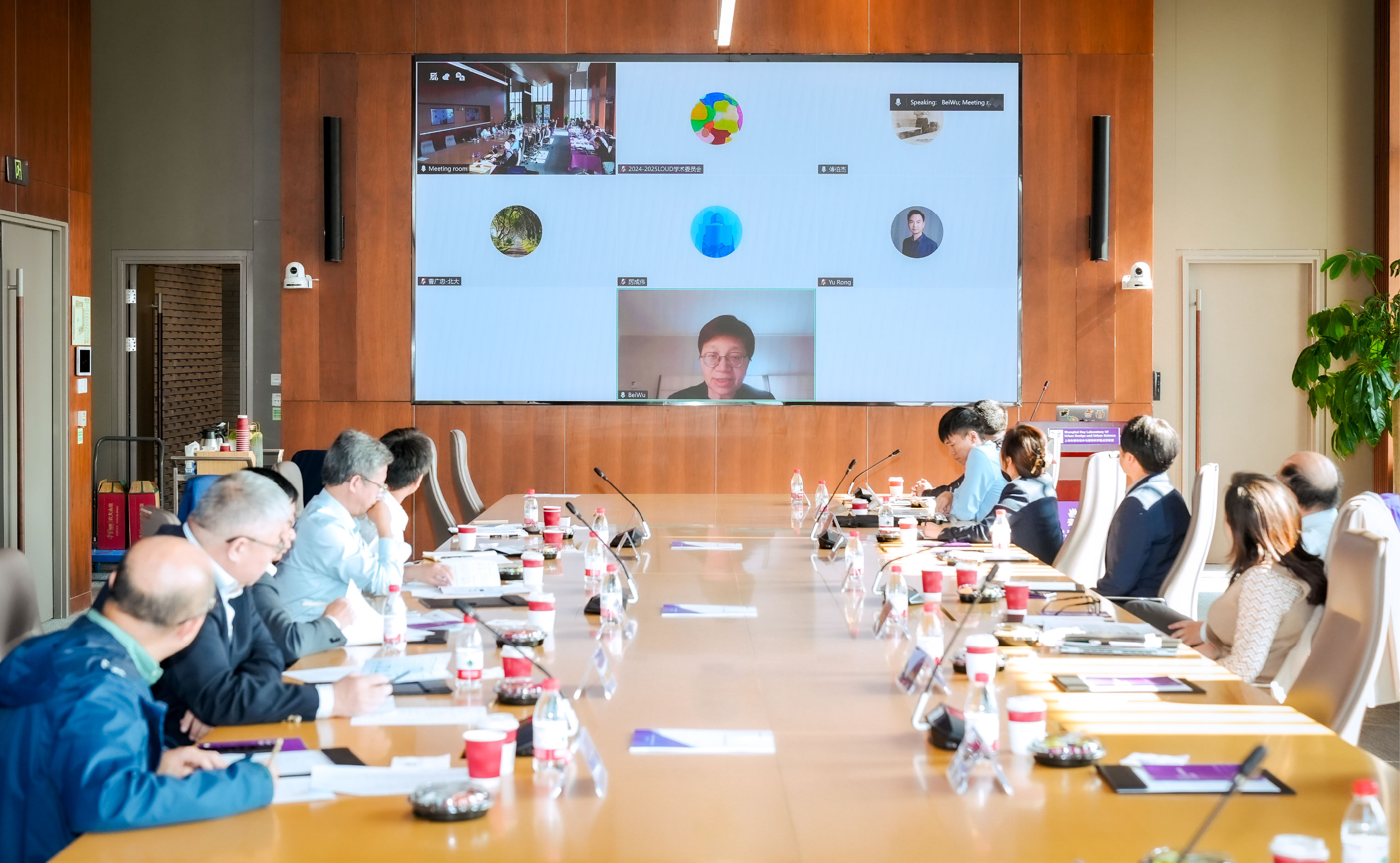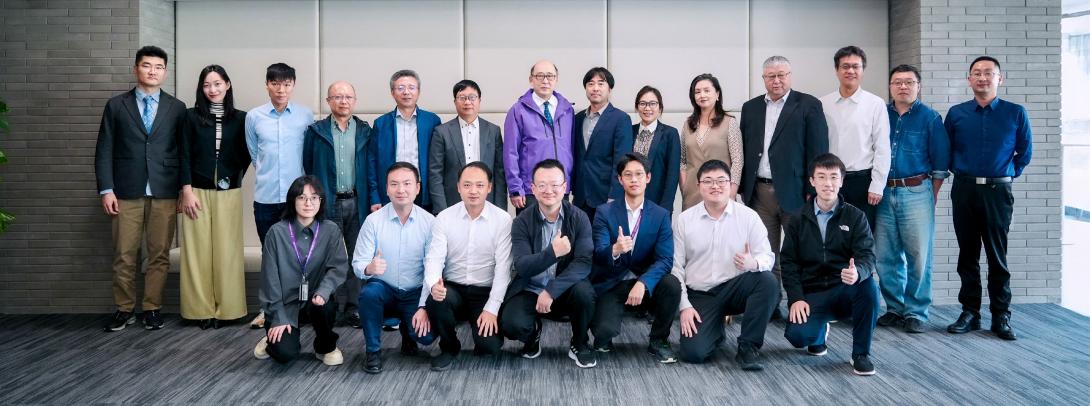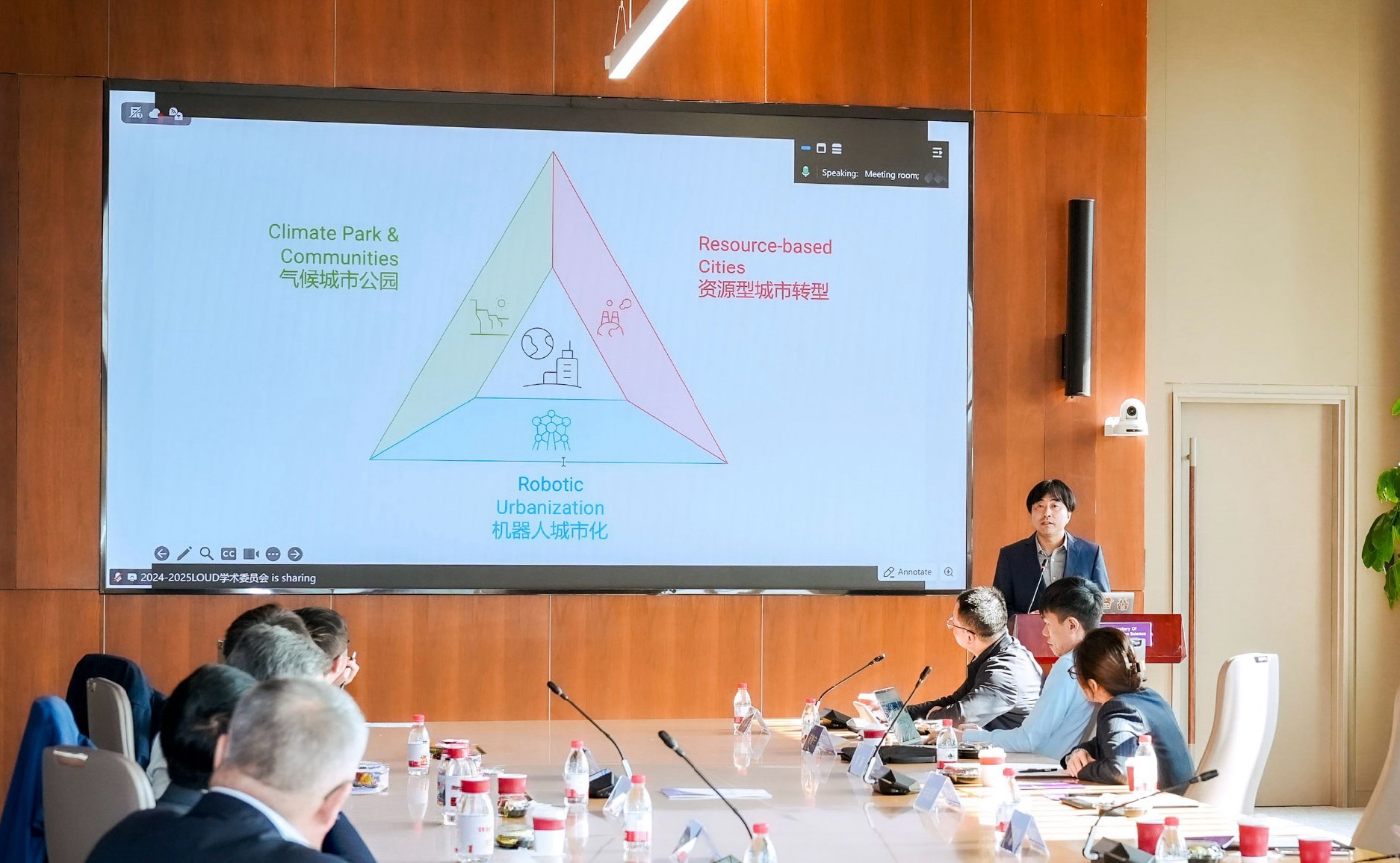On November 15, the Shanghai Key Laboratory of Urban Design and Urban Science (LOUD) held its 2024–25 Academic Committee Meeting at NYU Shanghai. Committee members reviewed the laboratory’s accomplishments over the past year, discussed its long-term development, and offered guidance for strengthening its research impact.
Co-Director Li Ying provided an overview of LOUD’s achievements over the past year, including its research output, academic exchanges, and talent development. In May 2024, the laboratory also successfully passed its evaluation by the Shanghai Municipal Science and Technology Commission.
Over the past year, the lab deepened its work across three core research areas and produced more than 50 high-quality academic papers, including publications in Scientific Data (Nature Portfolio), Communications Earth & Environment (Nature Portfolio), Journal of Planning Education and Research, Landscape and Urban Planning, and Cities. These studies explored topics such as urban spatial structure optimization, carbon emission modeling, ecosystem resilience, and the use of AI and remote sensing in environmental governance.

During the meeting, members of the key lab presented recent progress across the lab’s major research themes. NYU Shanghai Assistant Professor of Urban Studies and Computer Science Wang Zhaonan reported on spatial-temporal analytics and sustainable urban planning; Assistant Professor of Environmental Studies Huang Kangning discussed low-carbon urban development and climate-oriented modeling; and Assistant Professor of Interactive Media Business Helena Rong shared work on AI-enabled environmental sensing technologies for blue–green infrastructure. Additionally, LOUD member Zhou Yichun introduced updates on postdoctoral training and development.
Looking ahead, Co-Director Guan ChengHe outlined the lab’s five-year development plan. LOUD will expand research in three strategic directions: urban climate parks and communities, transformation of resource-based cities, and robotic urbanization. In particular, the lab seeks to explore how “embodied intelligence” can serve as a mediating layer between the physical and digital worlds, especially within the context of robotic and lightweight urbanization.
The lab will also leverage its international collaborative network to explore “lightweight urbanization” as a pathway for future cities, one that emphasizes low-cost, low-carbon, and highly adaptable modes of city-making through modular materials, accessible data, flexible governance, and scalable infrastructure to support sustainable and inclusive urban development.
In parallel, the lab aims to strengthen research platforms, enhance its role as a hub for technological innovation, and further leverage NYU Shanghai’s international environment to support talent cultivation, interdisciplinary collaboration, and global partnerships.
At the meeting, Provost Bei Wu reaffirmed the university’s commitment to LOUD. “As a flagship research platform of NYU Shanghai, LOUD will continue to receive strong support,” she said. “We aim to provide the resources and environment the lab needs to thrive and to strengthen its role as a driving force behind the university’s research mission and Shanghai’s innovation ecosystem.”
During the discussion session, committee members commended the laboratory’s achievements in capacity building, talent training, research breakthroughs, and public engagement. They expressed support for LOUD’s research directions and encouraged the lab to continue producing forward-looking, influential work. Committee members also emphasized the importance of strengthening research translation and connecting scientific output more closely with China’s evolving urban development needs, further amplifying the laboratory’s academic and societal impact.



